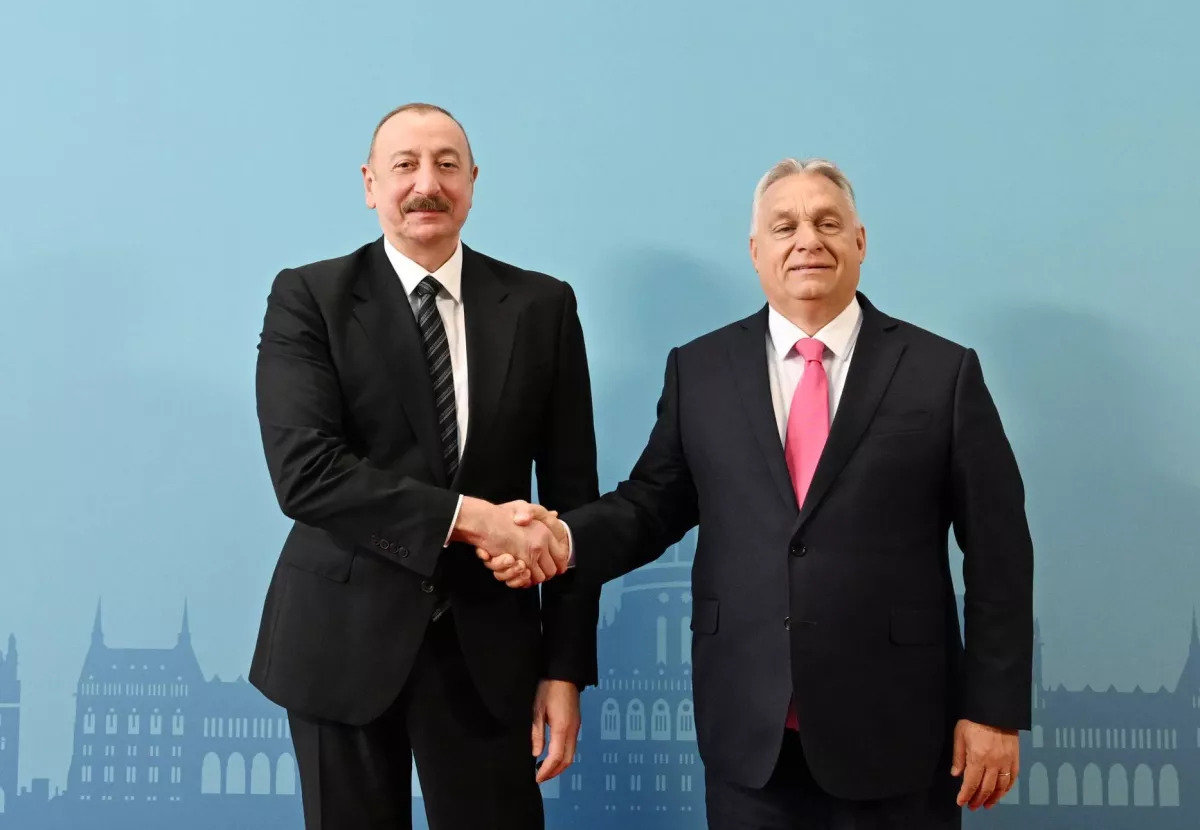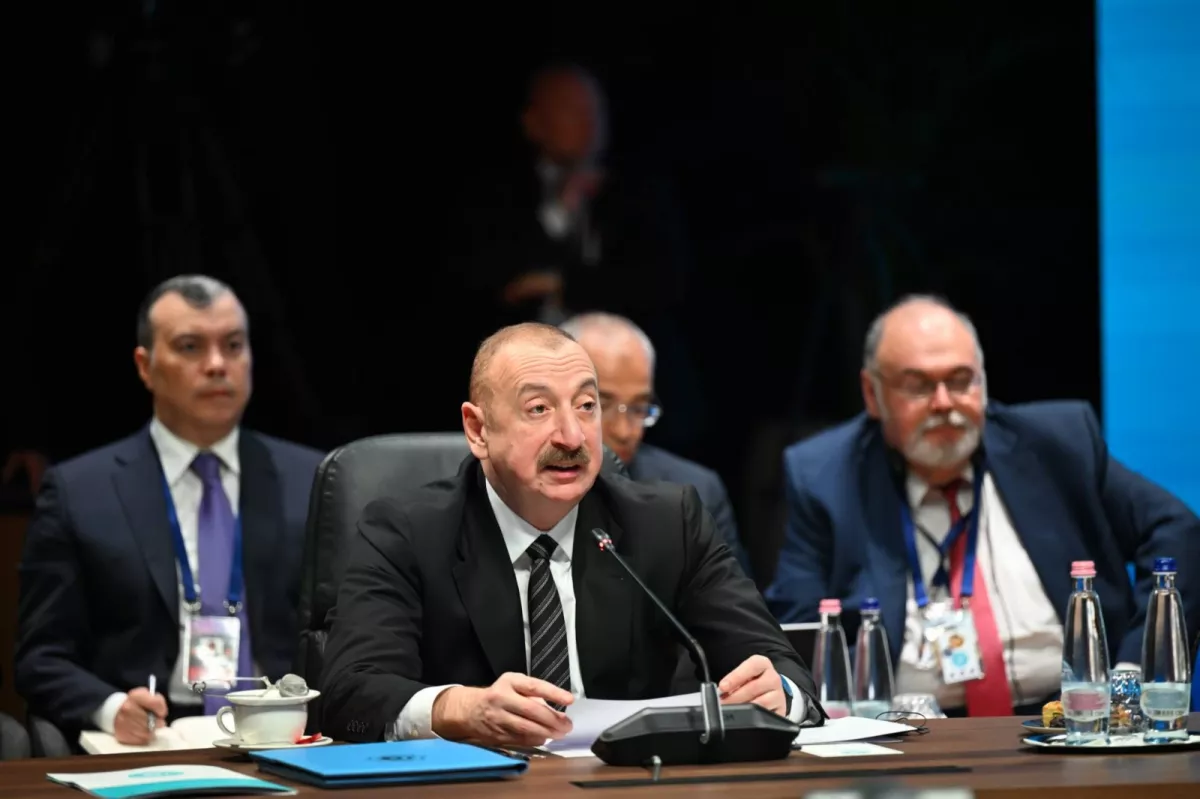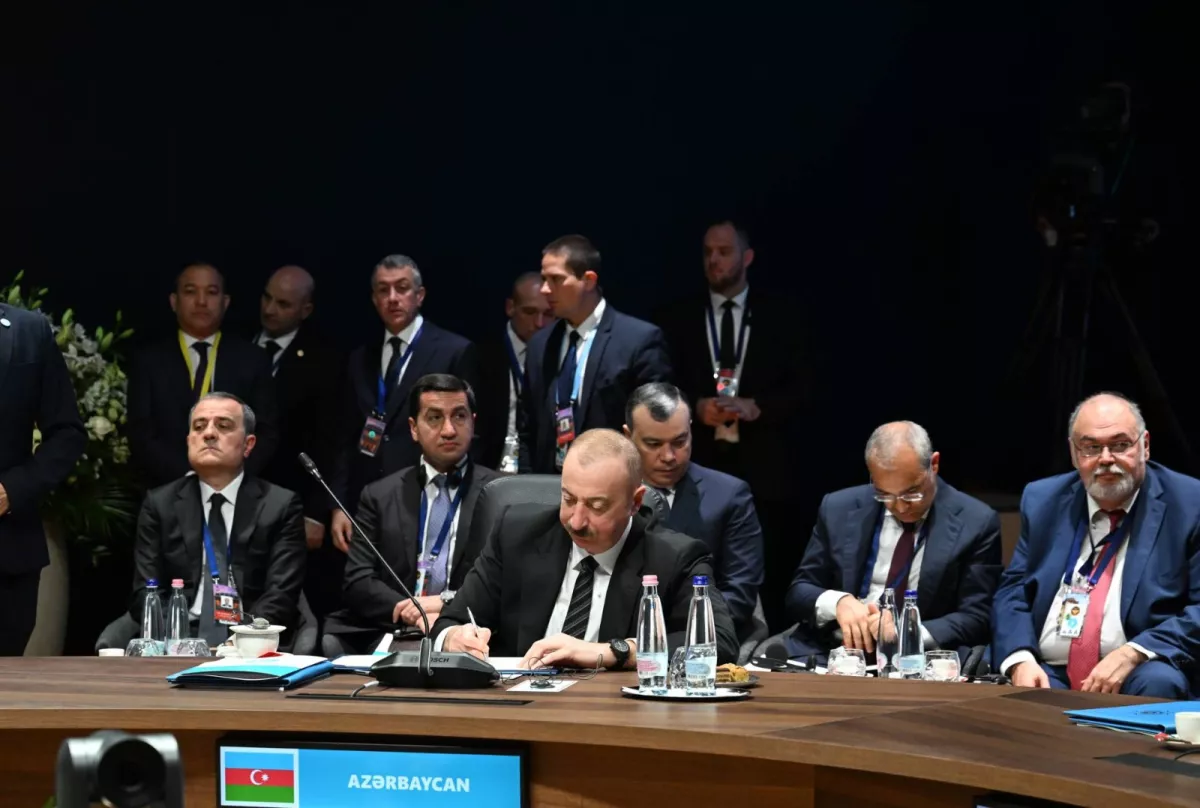Turkic world on verge of major breakthrough President Aliyev outlines key priorities
At the informal summit of the Organisation of Turkic States (OTS) held in Budapest on May 21, Azerbaijani President Ilham Aliyev delivered a speech that, beyond reviewing past achievements, effectively served as a declaration of a new stage in Turkic integration — one in which Baku’s central role is becoming increasingly evident. Aliyev’s tone — confident and pragmatic — reflects Azerbaijan’s growing influence as an economic, transport and diplomatic hub in the region.
At the outset of his remarks, the president highlighted Azerbaijan’s strategic alliance with Hungary. Ilham Aliyev stated that “Hungary is a country that pursues an independent policy, and its international standing continues to grow.” Viewed in the broader context of Azerbaijani-Hungarian relations and his recent meeting with Prime Minister Viktor Orbán, these words suggest that, amid deepening global polarisation, Hungary and Azerbaijan are presenting themselves as sovereign states with independent foreign policies.

A key part of President Aliyev’s speech focused on transport and logistics integration. Azerbaijan aims not merely to participate in transport corridors but to become their central organizer, actively investing in the necessary infrastructure to achieve this. The Middle Corridor (the Trans-Caspian route), which includes the Baku–Tbilisi–Kars railway, is given top priority.
Effectively, Azerbaijan positions itself as a Eurasian land “port” — a country without access to open seas that nevertheless is building a fleet, expanding its shipbuilding facilities, and developing maritime ports. The Caspian port of Alat is becoming an important transit hub, and increasing its capacity from 15 to 25 million tonnes further strengthens this status.
The announcement of the construction of nine international airports, including in territories recently returned to Azerbaijani control, demonstrates not only economic ambitions but also the cementing of the strategic significance of Karabakh and East Zangezur.
Aliyev reminded the audience of Azerbaijan’s direct investments in Turkic states, which exceed $20 billion, and emphasised the importance of the Turkic Investment Fund, designed to structure economic cooperation within the Organisation of Turkic States (OTS). This can be seen as a signal that Azerbaijan is aspiring not only to the status of a donor but also to institutional leadership.
President Aliyev paid special attention to the climate agenda — COP29 — which Baku hosted in record time. He presented the conference’s outcomes as a breakthrough in global climate diplomacy. The increase in target financial commitments from developed countries to developing ones, from $100 billion to $300 billion, is a step that could strengthen Azerbaijan’s global position as a mediator between the Global South and the Global North.

This intense focus on the event aims to reinforce Azerbaijan’s image among OTS partners as the organisational core of the organisation, capable of facilitating the implementation of comprehensive global solutions. The “Baku breakthrough” is not only a diplomatic success of COP29 but also a metaphor for the country’s transformation: from an oil exporter to an architect of global projects.
A separate emphasis in Aliyev’s speech was placed on the strategic partnership agreement in the field of green energy between Azerbaijan, Kazakhstan, and Uzbekistan. This initiative signals the region’s shift from raw material dependence to new sources of growth. Green energy is poised to become the next export commodity, and Baku intends to be its gateway to European markets.
In conclusion, Ilham Aliyev’s speech was not merely a showcase of achievements but a strategic proposal for the Organisation of Turkic States (OTS): to focus on pragmatic integration, where the key resources are infrastructure, digitalisation, and energy sustainability. Azerbaijan offers a model of active integration without relinquishing traditional sovereignty — precisely the format currently in demand within the Turkic world. At the same time, Aliyev cemented Azerbaijan’s image as the locomotive of Turkic integration — not through declarative rhetoric but through demonstrating concrete results and strategic initiatives.

Following the summit, the Budapest Declaration was adopted. We will dedicate a separate article to this document, but it is important to note now that it reflects key points in the development of the common Turkic agenda, including the need to increase the OTS budget and to initiate project activities of the Turkic Investment Fund — the Organisation’s first joint financial institution.
The declaration welcomes the implementation of green energy projects, the development of sustainable infrastructure, as well as the entry into force of the Agreement on the Establishment of a Simplified Customs Corridor between member states. This article of the declaration also reinforces the central theme of Ilham Aliyev’s speech — that investment in infrastructure is an investment in the future of the Turkic world.








